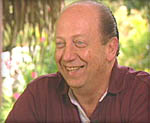Roberto Eisenmann Story - Panama's Education System and Coronado

We continue with the final installment of our interview with well-known, local Panamanian, Roberto Eisenmann. In this final portion of the interview we discuss his thoughts regardingthe education system in Panama, and the Coronado area. We ask Mr. Eisenmann to touch on an issue that is close to his heart. Panama's education system. Eisenmann comments, “That's a major item we have to work on. The Ministry of Education is probably the worst bureaucracy we have in government.” “As a result of this, people are left with the private school system as the only choice, and many cannot afford it,” he says. Eisenmann talked about setting up experimental public schools and following their lead in improving education. In his proposed project, schools would be set up in each province to help improve the education system. The leaders of each project would come together each month, compare notes and then implement what works. He cites as a precedent the fact that the Instituto Nacional, which was a public school, was always considered the best in Panama.
Mr. Eisenmann recounts how his parents sent him to school in the Canal Zone in order for him to speak English well. His opinion is that he ended up with good English but a high school education that failed him when he went to the University of Pennsylvania for college. “I had a terrible time getting through,” he says, commenting that Ivy League school preparation usually requires going to a prep school.
The best high school education in Panama, according to Mr. Eisenmann, was and is in Catholic schools, although there are now a couple of good private schools. “Education is a major item,” he says. “You don’t have social validity if you don’t have education. There’s a lot to be done.”
Mr. Eisenmann goes on to say that Panama has major problems in education, health, transportation, and security. He says that the security is better than in neighboring countries but not as good as Panama was used to.
One cannot end an interview with Roberto Eisenmann without, of course, discussing the other thing for which he is so well known: Coronado.
It was Robert Eisenmann’s father who founded the community on the property which he owned with a partner. His grandfather, who was from Alsace Lorraine, had previously settled in New Orleans.
“The name,” Eisenmann says, “is very Jewish and very German, but when the family came to America, they felt very French.” As he says, “With Alsace Lorraine, one day it was German and one day it was French depending upon who won the war that week. My father’s partner was Spanish, from Spain. They formed their business in 1904, a year after the independence of Panama. They bought a lot of land speculatively [including the area of Coronado Bay].”
Roberto Eisenmann’s father came to visit Panama, fell in love with the area and bought the Coronado Bay land with a number of friends. One of the friends had stayed at the Coronado Hotel in California and made the suggestion of Coronado as a name for the area and it stuck.
His father sold the first batch of lots, and after 10 years, not one property had been built on. When he sold again, construction became a part of the contract. This stipulation is still in effect today only now one must build on their lot within one year of the purchase date, depending on whether or not the property is beachfront.
Roberto Eisenmann goes on to talk about his father’s passing and wanting the family to retain Coronado and its development. He talks about the family safeguarding and guiding Coronado over the years and how it will be when the last of the available lots are sold and the family is no longer involved in the daily affairs of Coronado.
Talking with Roberto Eisenmann is like getting a personal, guided tour through the history of Panama. It is wonderful to be able to hear the accounts firsthand and to truly get a sense of what it has been like for the people of Panama. Roberto Eisenmann loves Panama. He loves it so much that he endangered his life speaking up for freedom during the dictatorship years and lived for years in exile.
Roberto Eisenmann, though no longer the publisher of La Prensa, still writes a column. He has also written several books that are collections of his columns. He often writes about political science; however, just so that he is not too one dimensional, he sometimes writes about a siesta in the hammock and people are more interested he says. The Birth of a Nation, written by Roberto Eisenmann, was “more of a book,” according to the author, than his prior ones. At this time in life, he says that he is stepping back from public life and has, indeed, given up a couple of jobs. However, it is difficult to imagine this man, with the strong voice for freedom and deep love of liberty, straying too far onto the sidelines of Panama’s public life. One would hope that his voice is heard and his advice heeded as Panama moves forward.
End of article
